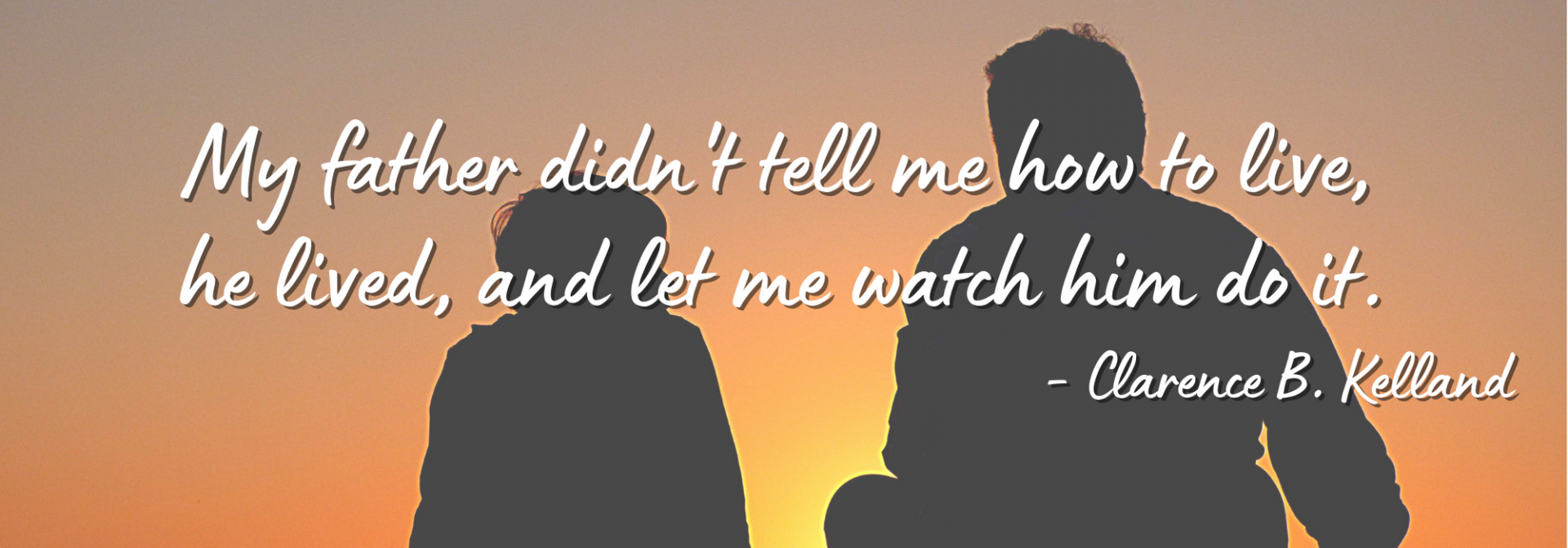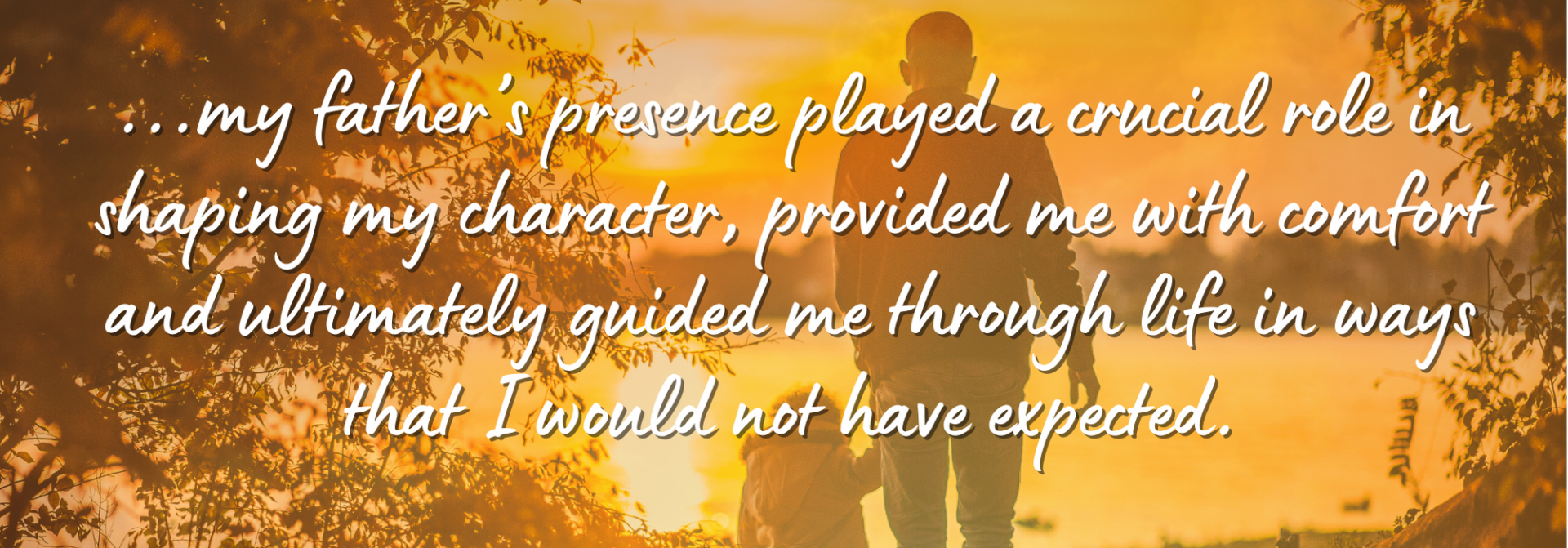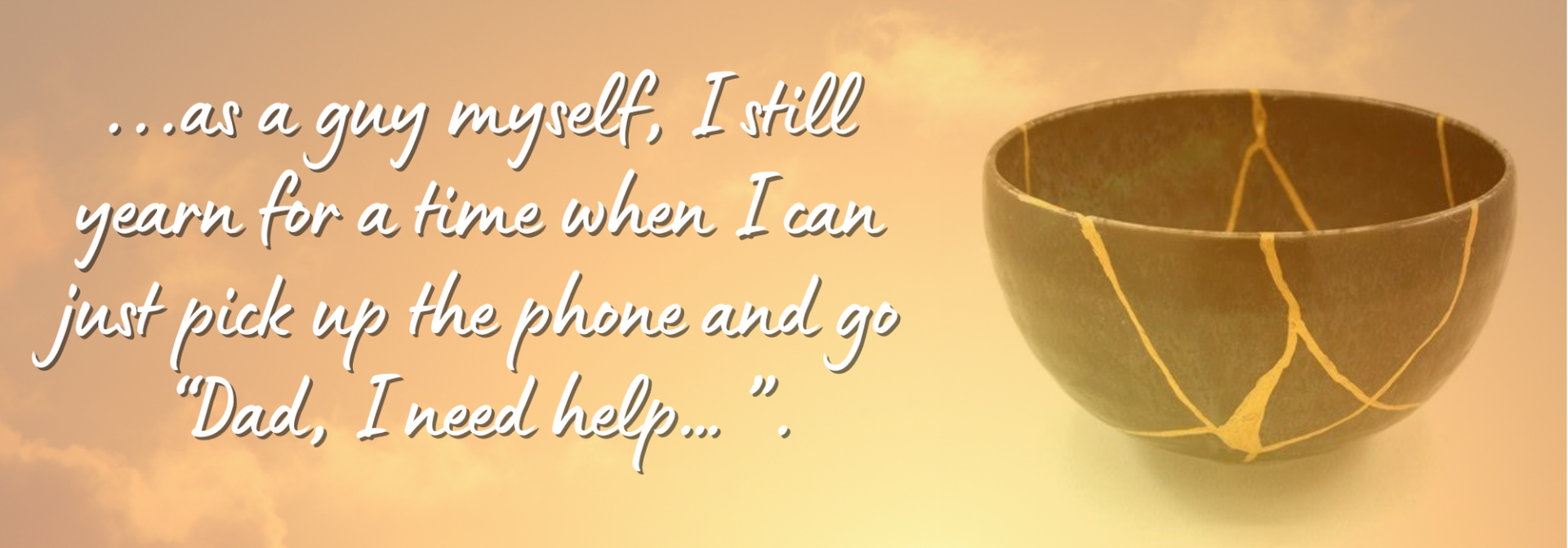
The importance of a Father's presence in one's developmental years has been well documented and researched over the years. In addition to modelling important values and behaviours, the father also provides his family with a crucial sense of security and stability. Most importantly, they see and believe in the good that everyone possesses, and are called to encourage and support their loved ones as they pursue this good.
How does a present father help their child's development? What are the implications of an absent father?
Read on as we share two stories of individuals with either one of these experiences.

Ezekiel, 23
Growing up, I always felt closer to my mum naturally as I spent more time with her. My father was always a quiet figure in my life, often showing his love in subtle ways. Upon reflection, I have come to realise that my father’s presence played a crucial role in shaping my character, provided me with comfort and ultimately guided me through life in ways that I would not have expected.
My father shaped my character by teaching me how to live righteously. He always led by example and lived virtuously by serving the church. His example not only sparked an interest in me to join church ministry, but also gave me a reason to stay away from vices. Once, I recall an incident where I accidentally said a vulgar word in front of him. He corrected me sternly for that, and subsequently this memory served to help me avoid the habit of speaking profanities, even during my National Service.
Secondly, my father’s presence always brought about comfort. Despite him spending many hours at work, the simple thought of him working hard to pay for my studies really makes me extremely thankful each and every day. One example of this was when he went overseas to work just so that he could earn extra money to pay for my university tuition fees. He went alone and lived by himself for over 2 years. I often take for granted the many privileges that I do not see daily, such as not having to pay for my own education and food. I will be ever grateful to my father for the sacrifices he makes each and every day for the family.
Lastly, my father’s presence guides my spirituality in life. Despite the aforementioned good things about my dad, he wasn’t always perfect. In fact, he slowly changed dramatically over the years only by the grace of God when he was serving in church. His conversion deeply inspired me and led me to desire that change in my life, to be as loving as he had become.
To end off this testimony, I would like to give all glory to God for giving me a father that I will always deeply respect; one who reflects God’s love and example despite his shortcomings. To me, a father is one who is always someone whom you can look up to, a pillar of strength when difficulty arises. We can never be physically present all the time to our kids, but we can choose to be emotionally and spiritually present for them when they need us the most. Most importantly, the role of a father is to guide the family towards the Heavenly Father, the only one who is ever present to us.

Dion, 26
There’s something I do religiously every Father’s Day – delete my social media.
This might seem extreme, but for me, it saves me from having to see the stream of celebratory Father’s Day dedications and posts. Admittedly, some of these are absolutely lovely, and would easily bring a tear to the eyes of many, but for me, they just remind me of something I had always longed for – a father.
I began to feel the sting of a missing father figure from an early age. When I was around 7, I recall myself winning a swimming competition, despite competing with other youth 3-5 years older than myself. The joy of victory soon wore off as I looked around, and realized that I was the only competitor who did not have a father present. This sense of emptiness continued through the rest of my life. National Service was another painful season for me, because it was during this period where I saw many fathers actively involve themselves in the lives of their sons, whether it was sending them off as they enlisted on their first day, or pinning on their new ranks on them as newly-minted Sergeants.
Now don’t get me wrong, I am truly grateful for other important figures in my life who have played a pivotal role in shaping the person I am today. My grandma for one, always proved to be a source of comfort, and encouraged me to pursue what brought me joy, instead of listening to what the world tells me I ought to do. I also came to meet my Christian community in my early 20s, and have learnt to gradually accept myself and my past through their unconditional love and companionship. They have also helped me ground myself deeper in my faith, which has been both my compass as well as my refuge over the past few years.
That being said, no one is quite able to replace the role of my father. Particularly now, when I myself am pursuing my calling to marriage and Fatherhood, there is that emptiness in my life that I am still attempting to fill. Of course, I can easily turn to the strong women who have been so influential in my life, but as a guy myself, I still yearn for a time when I can just pick up the phone and go “Dad, I need help…”.
But in and amongst my own father’s absence, I have learnt much about Fatherhood myself. I have learnt that fathers are called to embody and defend truth in their own lives, and invite their families to join them through their example. I have learnt that a father is one who sees the goodness in those he loves (even if they sometimes struggle to see it for themselves), and because of that, is not afraid to call them out on their missteps because he knows that they are capable of much better. Most importantly, a father is one who is there for his family every step of the way, ready to encourage, protect, or simply, just be present.
It’s been years since my Dad walked away from my family, and I truly do look forward to the day I have accepted this enough that I don’t need to delete my social media every Father’s Day. I get that it may well be a life-long process of forgiveness and restoration that may drag into my own fatherhood, but I’m reminded today that the past serves as a life lesson, and not a death sentence. Just like the Japanese art form, Kintsugi, there can be beauty in the brokenness, and for me, it’s something I am most keen to pursue.

